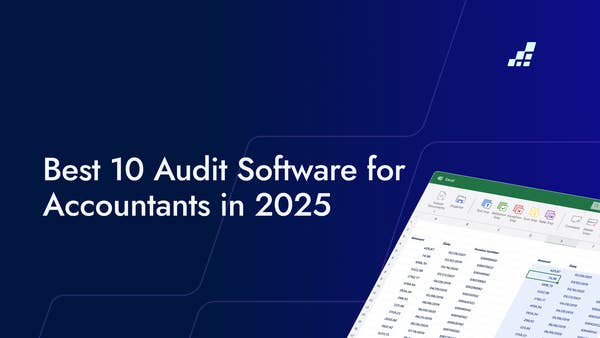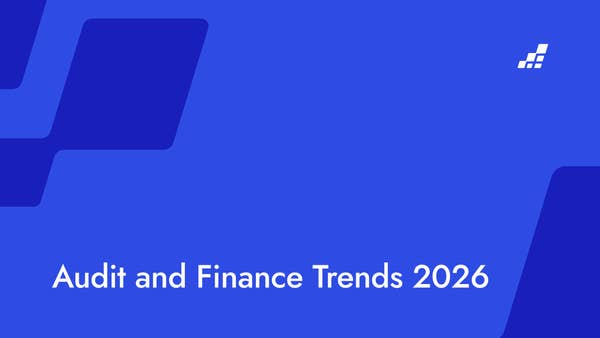- /
- Blog
Manual vs. Automated Tax and Audit Data Extraction
.webp?width=1400&quality=90&format=avif&crop=fit)
Extracting data manually can be a time-consuming and often frustrating process that can impede the efficiency of multiple departments in an organization. However, recent developments have introduced automated tools specifically designed for tax and audit data extraction.
The Basics of Data Extraction
Tax and audit data extraction is a crucial process that enables businesses to collect and transform data from various sources into a more usable format.
Extraction tools, such as OCR (optical character recognition), have made this process more efficient. However, historically, data extraction was a manual process that required a lot of time and resources. The issue here is that many audit firms still use outdated or non-optimal solutions for their data extraction tasks.
Manual Tax and Audit Data Extraction
Manual data extraction involves collecting data from various sources, such as paper documents, invoices, receipts, and other physical materials.
This process requires human intervention, which can be time-consuming and prone to errors. Manual data extraction also requires a lot of resources, including personnel, equipment, and storage space.
Automated Tax and Audit Data Extraction
Automated data extraction involves the use of software tools to collect and transform data from various sources. These tools can extract data from digital documents, such as PDFs and spreadsheets, and can also be used to extract data from physical documents using optical character recognition (OCR) technology.
The Challenges of Manual Data Extraction
Manually extracting data comes with a large number of challenges that are difficult to overcome without automation:
- Labor-intensive and flawed approach: Manual data extraction requires significant human labor and can be a time-consuming process.
- Dependence on individual availability and accuracy: Data access in manual extraction relies on the availability and accuracy of the person responsible for the task.
- Increased risk of errors: Dealing with large volumes of data manually increases the chances of errors occurring during the extraction process.
- Dependency on individual understanding and competence: The accuracy of manual extraction relies on the expertise and understanding of the person performing the task.
- Burden on the budget: Hiring and training individuals specifically for data extraction can be costly for an organization.
- Fatigue and concentration errors: The tedious nature of manual extraction can lead to fatigue, resulting in concentration errors and inadequate attention to detail.
- Incomplete or inaccurate data extraction: Due to the challenges mentioned, manual extraction may result in incomplete or inaccurate data.
- Impact on team morale: Employees performing manual extraction tasks may feel that their skills and expertise could be better utilized in more interesting and valuable areas of the audit process.
The Benefits of Automated Tax and Audit Data Extraction
With all those challenges that come with manual data extraction, you’re probably praying for an easy-to-implement solution, right?
That’s where automated tax and data extraction comes in. Here are the benefits:
- Reduction of human labor: Automated data extraction tools minimize the need for manual intervention, resulting in a decrease in labor-intensive processes.
- Increased speed and accuracy: Automation tools enable faster and more accurate data extraction compared to manual methods. They can efficiently capture large volumes of data without compromising accuracy.
- Time-saving and efficiency: By automating data extraction, employees are freed from repetitive and time-consuming tasks, allowing them to focus on more strategic activities.
- Standardized data format: Advanced extraction tools process data into a standardized format, making it easier to analyze and utilize for decision-making purposes.
- Recognition of diverse data types: Automated tools have the capability to recognize various types of data, including images, signatures, handwriting, and language strings. This broad recognition ability enhances the flexibility and applicability of the extraction process.
Key Features to Look for in Automated Data Extraction Tools
When choosing an extraction tool, it's essential to evaluate the system's effectiveness in data extraction. Here are some key features to look for:
- Accuracy: The level of accuracy in data extraction is crucial to have effective outcomes. Choosing a tool with high accuracy is an essential criterion.
- Speed: The time taken to extract the data needed is vital. It’s essential to choose an extraction tool that provides quick and efficient results.
- Flexibility: The ability of an extraction tool to work with various data sources, file formats, and data patterns without compromising its accuracy is essential.
- Integration: Choosing an extraction tool that can be efficiently integrated with other systems and organization architecture is crucial.
- Reporting: Selecting a tool with detailed reporting functionality and audit trail features can ensure transparency throughout the extraction process.
There are various types of data extraction tools available depending on your organization's requirements. It’s important to understand the processes you need automation for, and how much your budget allows for automation tools.


.png?width=600&quality=70&format=auto&crop=16%3A9)